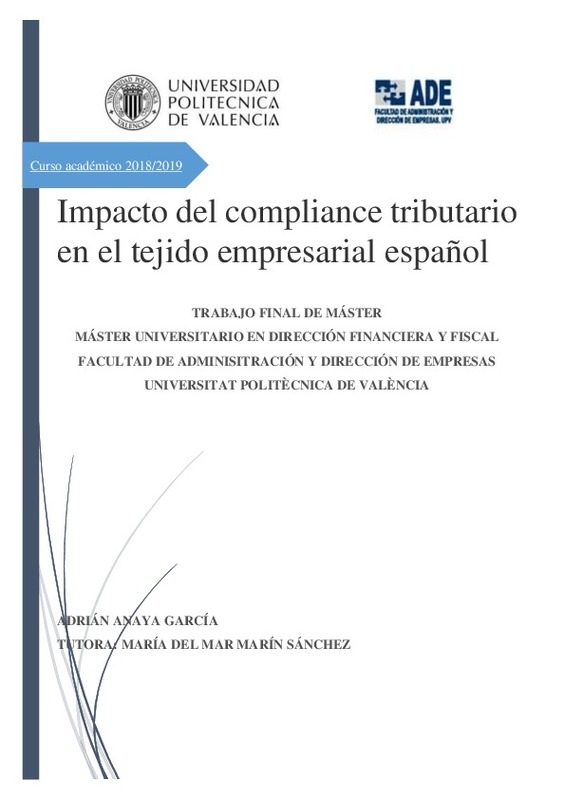|
Resumen:
|
[ES] A lo largo de este trabajo se ha pretendido analizar el impacto del compliance tributario
en las empresas españolas, estudiando las medidas que se llevan implementando en los
últimos años a nivel internacional, ...[+]
[ES] A lo largo de este trabajo se ha pretendido analizar el impacto del compliance tributario
en las empresas españolas, estudiando las medidas que se llevan implementando en los
últimos años a nivel internacional, especialmente impulsadas por la OCDE, con el
denominado Plan BEPS, y la Unión Europea, con la aprobación de la Directiva conocida
como DAC 6 que impulsa el intercambio automático de información en el ámbito de la
fiscalidad. En el caso de España, desde 2010, se han desarrollado medidas para
implementar el compliance tributario y mejorar las relaciones existentes con la AEAT,
como el Código de Buenas Prácticas Tributarias o algunas modificaciones legislativas
que han introducido el cumplimiento tributario. Al Código fundamentalmente se han
adherido grandes empresas o grupos empresariales y no llega todavía a la mayoría del
tejido empresarial español. Por otra parte, tras analizar la norma UNE 19602 de Sistemas
de gestión de Compliance tributario se constata que pueden existir dificultades para que
las empresas con un tamaño reducido cumplan con los requisitos que exige esta norma,
que pese a ser voluntaria, puede contribuir a demostrar que la empresa apuesta por el
compliance tributario y mejorar su imagen. Por último, se evidencia la necesidad de una
mayor seguridad jurídica y transparencia por parte de la AEAT, así como, que en la Ley
General Tributaria, existe cierto margen para incentivar la adopción del compliance
tributario, que va a ser fundamental en los próximos años.
[-]
[EN] Throughout this research we have tried to analyze the impact of tax compliance in the
Spanish companies, to study the measures that have been implemented in recent years at
the international level, especially driven ...[+]
[EN] Throughout this research we have tried to analyze the impact of tax compliance in the
Spanish companies, to study the measures that have been implemented in recent years at
the international level, especially driven by the OECD, with the called BEPS Plan, and
the European Union, with the approval of the Directive, DAC 6 that promotes the
automatic exchange of information in the field of taxation. In the case of Spain, since
2010, measures have been developed to implement tax compliance and improve the
relationships with the AEAT, such as the Code of Best Tax Practices or some legislative
amendments that have worked as tax compliance. Only large companies or business
groups have been joined by the Code and does not yet reach the majority of the Spanish
business. On the other hand, after analyzing the UNE 19602 standard of Tax Compliance
Management Systems, it is noted that there may be difficulties for companies with a
reduced size to comply with the requirements of this standard, which despite being
voluntary, can help to demonstrate that the company is committed to tax compliance and
improve its image. Finally, we see the need for greater legal security and transparency by
the AEAT, as well as the General Tax Law, there is some scope to encourage the adoption
of tax compliance, which will be essential in the coming years.
[-]
|







